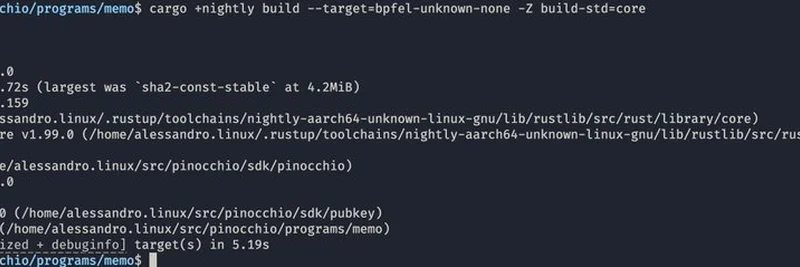Hey there, meme token enthusiasts! If you're deep into the Solana ecosystem, you know how exciting it is when new tools make building easier and faster. Recently, Alessandro Decina, a key figure in Solana development, dropped a bombshell on X that could change the game for meme token creators. In a thread starting with a simple "problem solved," he showcased compiling Pinocchio—a zero-dependency library for Solana programs—using the upstream Rust compiler's eBPF target. No custom forks of Rust or LLVM needed. Just pure, efficient magic, or as he playfully put it, "just meow meow."
For those not knee-deep in tech jargon, let's break it down. Solana uses something called eBPF (extended Berkeley Packet Filter) as its virtual machine for running smart contracts—or in Solana terms, programs. Traditionally, developing for Solana requires a forked version of the Rust compiler to target Solana's specific BPF flavor, known as SBF. This fork adds complexity and can be a barrier for devs wanting to whip up quick meme tokens.
Pinocchio, developed by Anza (the team behind much of Solana's core tech), is a lightweight library that lets you build Solana programs without heavy dependencies. It's perfect for simple applications like memo programs, which are often used in meme tokens for fun messages or metadata. Decina's achievement? He compiled a Pinocchio-based memo program directly with standard Rustc targeting eBPF. The result: an ELF file ready for Solana, as shown in his post: "pinocchio-memo: ELF 64-bit LSB relocatable, eBPF, version 1 (SYSV), not stripped."
This isn't just a win for techies—it's huge for the meme token world. Meme tokens thrive on speed and simplicity. Platforms like Pump.fun on Solana have exploded because they make launching tokens effortless. With this breakthrough, devs can potentially use vanilla Rust tools, reducing setup time and errors. Imagine deploying a cat-themed meme token ($MEOW, anyone?) without wrestling with custom compilers. That "meow meow" in the tweet? It might be a nod to the playful cat memes dominating Solana, like POPCAT or MEW, adding a fun layer to this technical feat.
The thread sparked reactions from the community. Jacob Creech from Solana Foundation urged, "No rust fork? Please ship." Others asked about compute units (CUs) for a simple "hello world," highlighting practical concerns for cost-efficient meme launches. However, Decina noted current incompatibilities due to VM changes by teams like Anza and Firedancer, calling for reversals to make this fully viable.
Why does this matter for meme insiders? Better tools mean more innovation. Meme tokens aren't just jokes—they're cultural phenomena driving adoption. With easier development, we could see a surge in creative tokens, from AI-generated art memes to community-driven utilities. If you're building on Solana, check out Pinocchio on GitHub (anza-xyz/pinocchio) and follow devs like @alessandrod for updates.
This could be the start of a smoother era for Solana meme tokens. What do you think—ready to compile your next big meme idea? Drop your thoughts in the comments! 🚀


